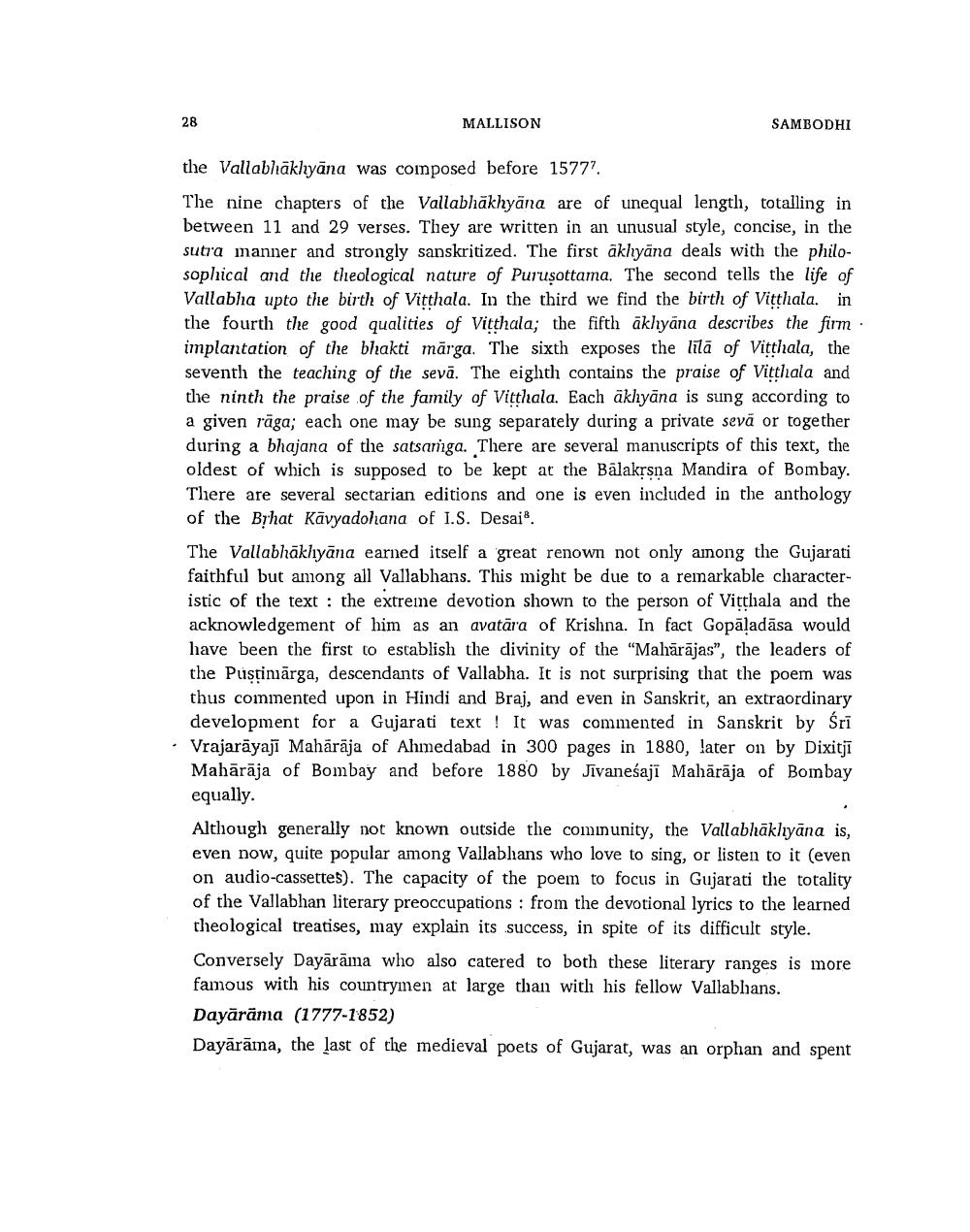________________
28
MALLISON
SAMBODHI
the Vallabhākhyāna was composed before 15777. The nine chapters of the Vallabhākhyāna are of unequal length, totalling in between 11 and 29 verses. They are written in an unusual style, concise, in the sutra manner and strongly sanskritized. The first akhyāna deals with the philosophical and the theological nature of Purusottama. The second tells the life of Vallabha upto the birth of Vitthala. In the third we find the birth of Vitthala. in the fourth the good qualities of Vitthala; the fifth ākhyāna describes the firm . implantation of the bhakti mārga. The sixth exposes the lila of Vitthala, the seventh the teaching of the sevā. The eighth contains the praise of Vitthala and the ninth the praise of the family of Vitthala. Each ākhyāna is sung according to a given rāga; each one may be sung separately during a private sevā or together during a bhajana of the satsarga. There are several manuscripts of this text, the oldest of which is supposed to be kept at the Balakrsna Mandira of Bombay. There are several sectarian editions and one is even included in the anthology of the BỊhat Kāvyadohana of I.S. Desai. The Vallabhāklıyāna earned itself a great renown not only among the Gujarati faithful but among all Vallabhans. This might be due to a reinarkable characteristic of the text : the extreme devotion shown to the person of Vitthala and the acknowledgement of him as an avatāra of Krishna. In fact Gopāladāsa would have been the first to establish the divinity of the "Mahārājas", the leaders of the Pustinārga, descendants of Vallabha. It is not surprising that the poem was thus commented upon in Hindi and Braj, and even in Sanskrit, an extraordinary
development for a Gujarati text ! It was commented in Sanskrit by Śrī · Vrajarāyaji Mahārāja of Ahmedabad in 300 pages in 1880, later on by Dixitjī
Mahārāja of Bombay and before 1880 by Jivaneśaji Mahārāja of Boinbay equally. Although generally not known outside the cominunity, the Vallabhāklıyāna is, even now, quite popular among Vallabhans who love to sing, or listen to it (even on audio-cassettes). The capacity of the poem to focus in Gujarati the totality of the Vallabhan literary preoccupations : from the devotional lyrics to the learned theological treatises, may explain its success, in spite of its difficult style. Conversely Dayārāma who also catered to both these literary ranges is more famous with his countrymen at large than with his fellow Vallabhans. Dayārāna (1777-1852) Dayārāma, the last of the medieval poets of Gujarat, was an orphan and spent




